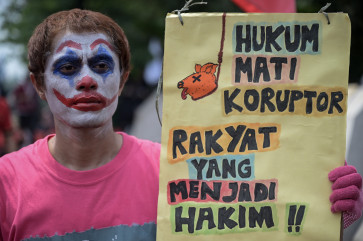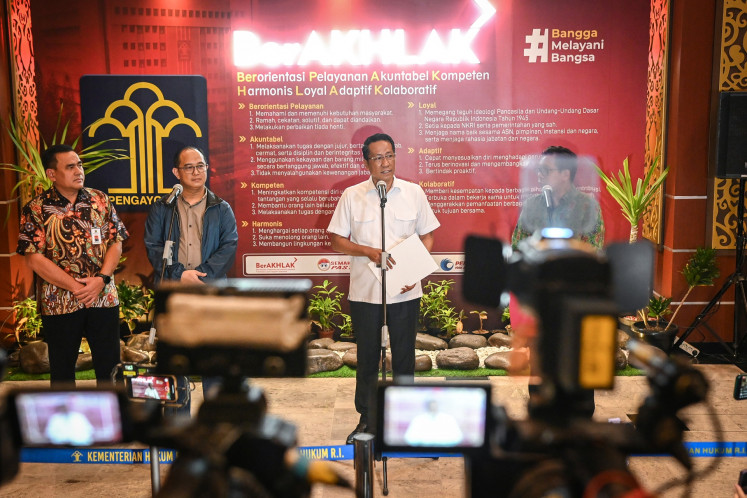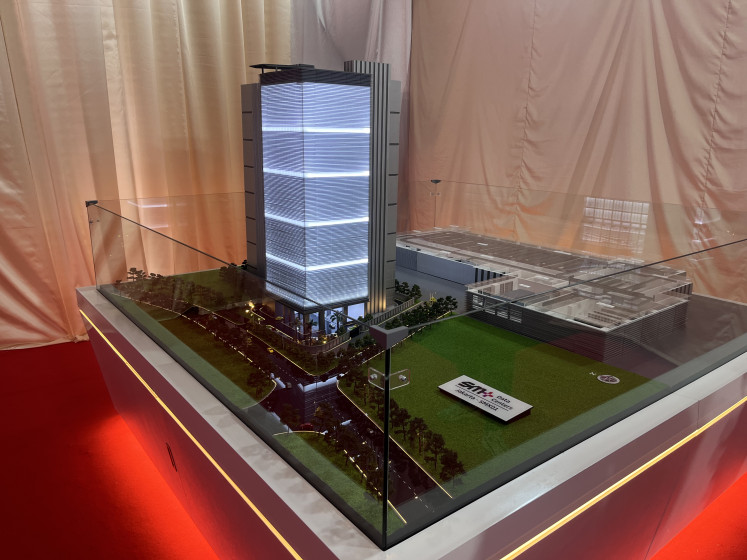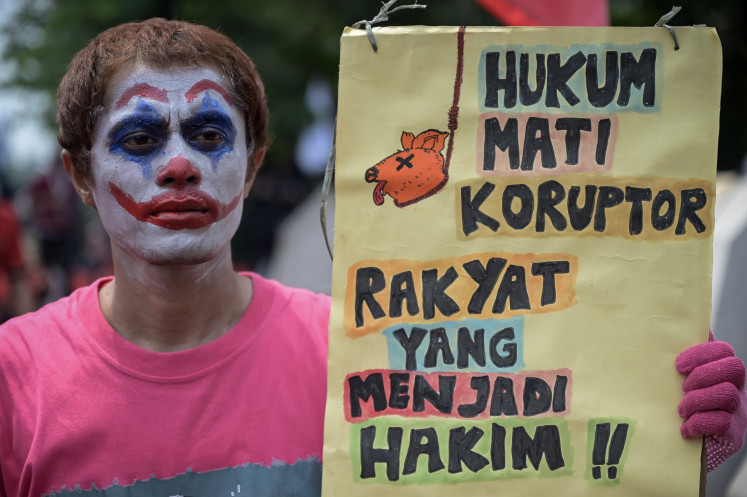Popular Reads
Top Results
Can't find what you're looking for?
View all search resultsPopular Reads
Top Results
Can't find what you're looking for?
View all search resultsIdul Fitri should go beyond celebration, festival
Idul Fitri, which is fast approaching, is one of the most significant Muslim festivals in the Islamic Calendar
Change text size
Gift Premium Articles
to Anyone
I
dul Fitri, which is fast approaching, is one of the most significant Muslim festivals in the Islamic Calendar. Muslims around the world celebrate it as it comes immediately after the end of Ramadhan. Those fasting during Ramadhan consider Idul Fitri as a day of victory and joy associated with a benign commitment to sharing it with others.
Idul Fitri, locally known as Lebaran, is for all Muslims an occasion not only to celebrate but also to be introspective and reflect on the degree to which they have brought themselves closer to the true tenets of their religion, and how prepared they are to identify themselves with the woes of the disadvantaged and less fortunate members of society. Prior to the giving of alms (zakat) to the poor at the end of Ramadhan, if it is to be more than a symbolic act of piety, it is necessary to heed the rights and the needs among our people, like the Idul Fitri bonuses for domestic workers.
Domestic workers deserve the Idul Fitri bonus even though there is no specific government regulation granting them one. Every year, it is public knowledge that employers still frequently violate the rules regarding the Idul Fitri bonus. It would be better if they were given more than their one month’s salary, because domestic workers’ salaries are mostly lower than in the formal sector.
Over the long term, however, doing the right thing for the needy will be fruitless given the yawning social gap that only grows worse during the Idul Fitri festivities. Mudik (homecoming) for Idul Fitri can spark social suspicion and disharmony as the wealthy and affluent fail to exercise restraint in their personal purchases which, in turn, allows them to indulge in a show of wealth, even unwittingly, while staying in their hometowns and villages.
Such deference to the feelings of those among the disadvantaged segments of society is expected. The traders and business people could undertake self-examination as to whether they participate in fair business practices to spread their profits through larger volumes of transactions. Both responsibilities and obligations must accompany this overarching, buoyant trend.
Idul Fitri should also be viewed as a great moment of spreading the light of unity among Muslims. We frequently find that many people fast on the day of Idul Fitri. This situation has created a lot of confusion. Apart from discussing the issue with a fiqh perspective, we should also ponder family, social and psychological dimensions. How can a Muslim celebrate Idul Fitri with his or her family and friends in such situations?
With Idul Fitri just around the corner, Indonesia can play a significant role in urging the Muslim World League, the Organization of the Islamic Conference, or the Islamic Fiqh Academy to take up this matter as an important issue in order to unite Muslims. A day will come when Muslims all over the world will observe Ramadhan and Idul Fitri as well as Idul Adha on the same day. Islamic organizations such as Nahdlatul Ulama and Muhammadiyah should agree to speak with one voice in terms of the days of the Islamic calendar.
I believe the need for Muslim unity may start at the regional level. Indonesia, together with other members of Mabims (Brunei, Indonesia, Malaysia and Singapore Religious Council), must put an end to the differences in dates on which we celebrate our Ramadhan, Idul Fitri, Idul Adha and the Maulidur Rasul (the birthday of the Prophet Muhammad).
Another matter of importance is to prevent chaos during the Idul Fitri celebration. Idul Fitri provides the opportunity to advance Islamic solidarity, which is clearly seen in the open houses held during Lebaran. Open house celebrations serve the dual purpose of celebrating Idul Fitri and renewing social bonds with friends and relatives.
However, there have been incidents in the past when these kinds of Idul Fitri open houses have resulted in deaths as people were trampled in an attempt to get gifts. The worst incident in recent years took place in 2008 in Pasuruan, East Java, when 21 people died outside a businessman’s house.
Therefore, those who want to provide charity for the poor and orphans should use the appropriate channels. Other parties that want to open their houses to the public would be advised to first notify the police and the mayor, to make sure that the distribution of gifts remains orderly. The same thing should apply to vehicle convoys on the eve of Idul Fitri. Instead of driving around and chanting takbir, Muslims could celebrate it near their respective mosques.
Idul Fitri is indeed no ordinary festival. It is a festival with a difference. It has a definite purpose, a norm to convey, a lesson to teach. None of us can afford to celebrate this extraordinary occasion through extravagance and prodigality, through unbridled fun and frolic, through gaudy and expensive dresses, through spectacular functions and feasts.
Muslims share their happiness in celebration and in prayer. Let us celebrate Idul Fitri in its true spirit, as it is meant to be celebrated. To all of you, I wish a blessed Idul Fitri. Eid Mubarak!
The writer, a graduate of the University of Canberra in Australia, is a lecturer at Andalas University, Padang.










